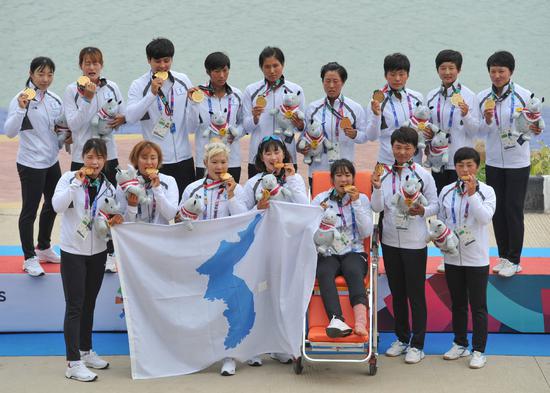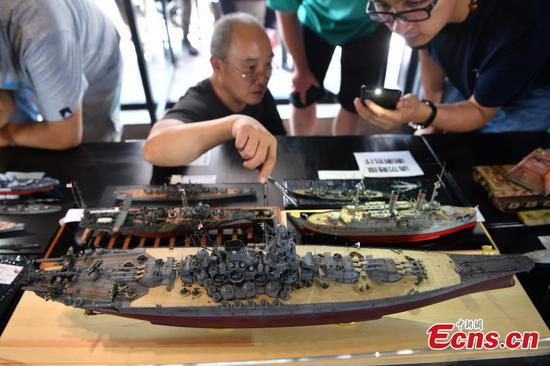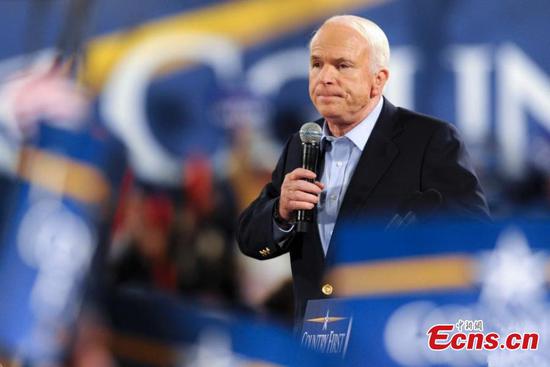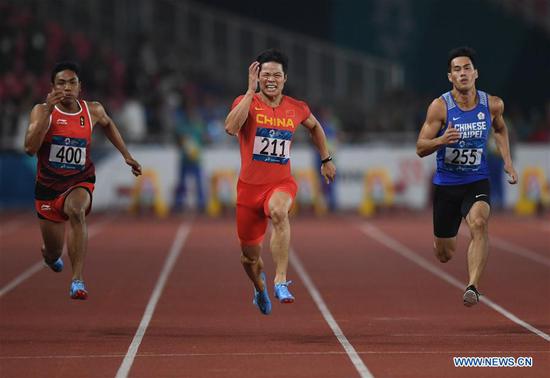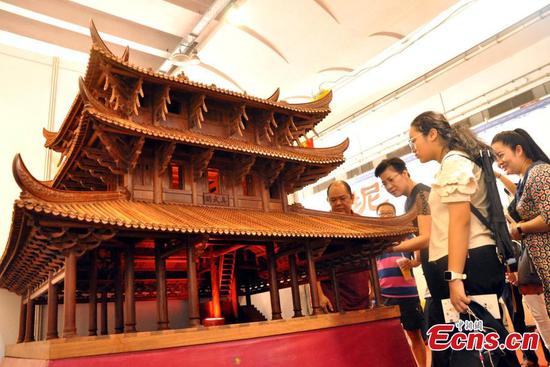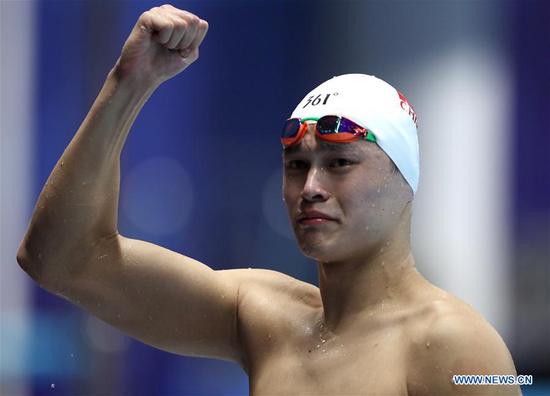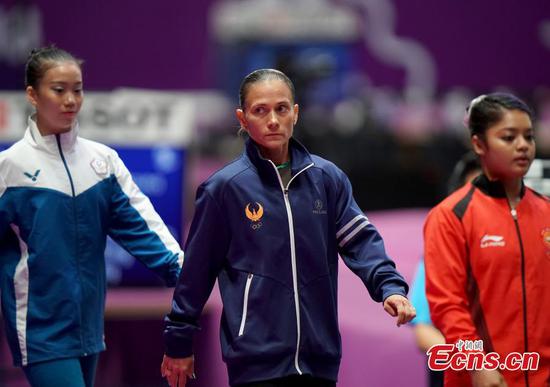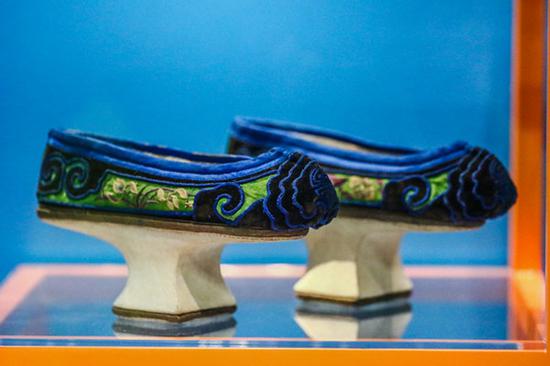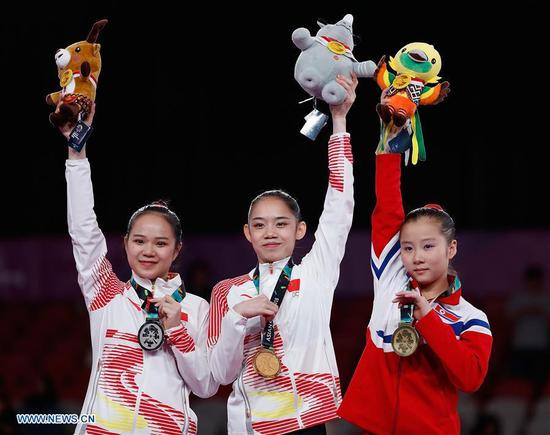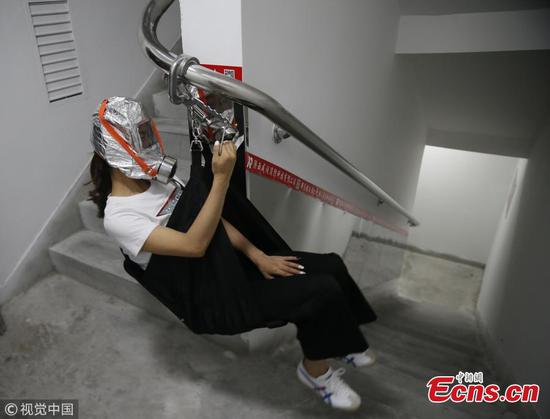Japanese Prime Minister Shinzo Abe has declared candidacy for the Liberal Democratic Party's leadership election to be held next month.
Experts here noted that having secured support from five out of the seven intraparty factions, Abe is set to win the party election and become the longest-serving prime minister in postwar Japan.
Meanwhile, as Abe has reiterated his determination to revise the pacifist Constitution, heated debate on the issue is expected to carry on throughout the election campaign and even Abe's expected third consecutive term, causing political chaos and public divisions, experts said.
ON WAY TO WIN
"I am determined to hold the helm of Japan for three more years as LDP president and prime minister," Abe told reporters in Tarumizu, Kagoshima prefecture, in southwestern Japan, on Sunday.
The election, to be held on Sept. 20, is likely to be a two-horse race between Abe and former Defense Minister Shigeru Ishiba who has declared his candidacy on Aug. 10.
Currently, five of the seven intraparty factions, encompassing about 70 percent of the party's lawmakers, have expressed their readiness to support Abe.
A Kyodo News survey released on Sunday showed that 36.3 percent of the respondents backed Abe as leader of the ruling party, while 31.3 percent supported Ishiba. Others said they were undecided yet.
Abe has been unopposed and reelected for his second consecutive three-year term in 2015 since he retook office in 2012.
Experts noted that compared to Ishiba, Abe, as president of the party, enjoys certain advantages in garnering support from his party members in the election.
Ukeru Magosaki, a former Japanese Foreign Ministry official, said that under the current election system, if a lawmaker wants to get reelected in local election, he or she has to get support from the party, otherwise the lawmaker can not run as the party's candidate and will be thus be at a disadvantageous position.
"It's because of this election system that the lawmakers have to choose to support the party leader. Even those who are secure in their position as a lawmaker, they might want to get important portfolios in the Cabinet and thus also need the support of the prime minister," he said.
His words were echoed by Tase Yasuhiro, political analyst and Nikkei columnist, who said that the lawmakers support Abe for their own interests instead of respect for the prime minister. After the party election, the prime minister will have a cabinet reshuffle, and some lawmakers aim to get a good position in the new cabinet.
Kazuya Iwamura, commentator from Kyodo News, said that there is no strong candidate inside the party that can replace Abe, and potential candidates from younger generations still lack the drive to win.
Despite a number of favoritism scandals that have been damaging Abe's support rate since last year, such as the Moritomo Gakuen and Kake institution scandals, the opposition parties failed to unite and cause real threat to the Abe administration, he said.
POLITICAL TURBULENCE TO CONTINUE
Meanwhile, analysts noted that despite Abe's dominance, turbulences may still build on inside the party surrounding a few major events next year, including local elections and the House of Councilors election, and especially surrounding the constitutional revision.
Yasuhiro said that under the current LDP rules, Abe will not able to run a fourth consecutive term, and thus became a "lame duck" in his next term, with supporters in his party declining fast.
He added that by now the achievements of Abe's economic policies dubbed as "Abenomics" have been largely a show staged by the power, and such a show won't be able to continue with Abe's power contained amid political chaos.
With the consumption tax increased again and the turbulences surrounding the upper house election in 2019, the stock market will also go unstable, causing disruptions to the economy, he said.
Magosaki said that the upper house election next year will be vital for the opposition parties, and if the opposition forces could unite, they might be able to overthrow the two-thirds majority of the ruling parties in the house.
"But on the other side, whether the opposition forces can really unite and fight, we still need to wait and see," he said.
Iwamura believes that in Abe's next term, there won't be much change to his policies, while constitutional revision will continue to cause the biggest dispute.
CONSTITUTION REVISION UNDER SPOTLIGHT
Abe has said earlier this month that the party aims to submit a bill to amend the Constitution in the extraordinary Diet session this autumn.
Constitutional revision, which has been Abe's long-term ambition, is expected to run through the campaign period of the party election and even Abe's expected third consecutive term.
Abe and his rival Ishiba have been holding different views on revising the Constitution. While Abe has called for adding a reference to the Self-Defense Forces in the Constitution's war-renouncing Article 9, Ishiba said this revision should not be a priority due to lack of public understanding.
The Kyodo survey on Sunday showed that 49.0 percent of the respondents were against Abe's intention to submit a constitutional revision bill in the autumn, while 36.7 percent said they were supportive.
Magosaki said that the Abe administration is still struggling with its relatively low support rate following the favoritism scandals, and with local elections, emperor's abdication and upper house election coming next year, it would be very difficult for the prime minister to force through the constitutional revision bill amid strong opposition from the public.
In Yasuhiro's opinion, even if the ruling camp force the bill through the parliament, it will still be difficult as a national referendum is needed to begin proceedings to legally change the Constitution.
"With discussions and disputes deepen surrounding the thorny issue, the opposition parties might have the chance to get united and win public support, and thus create a situation that could contain Abe following the upper house election next year," said Iwamura.









